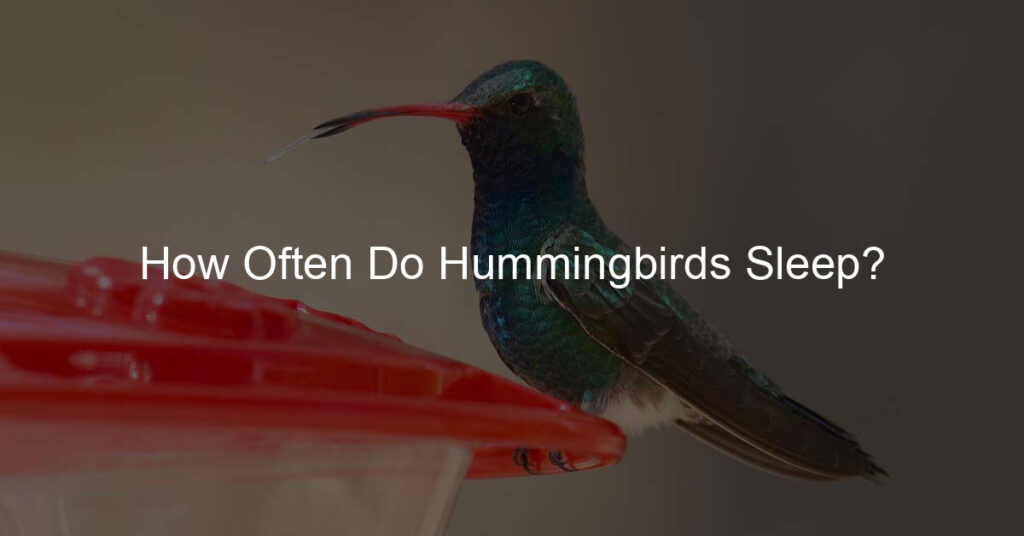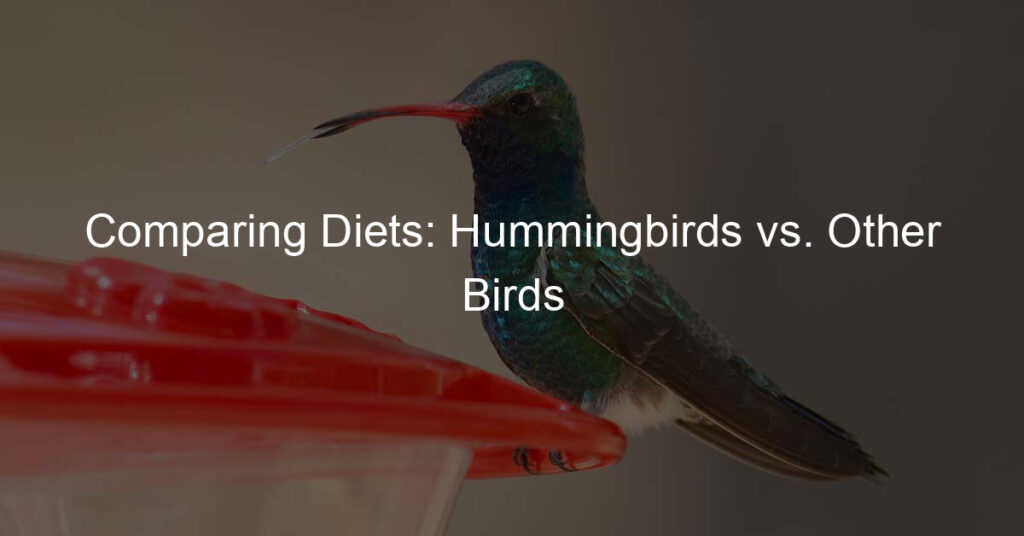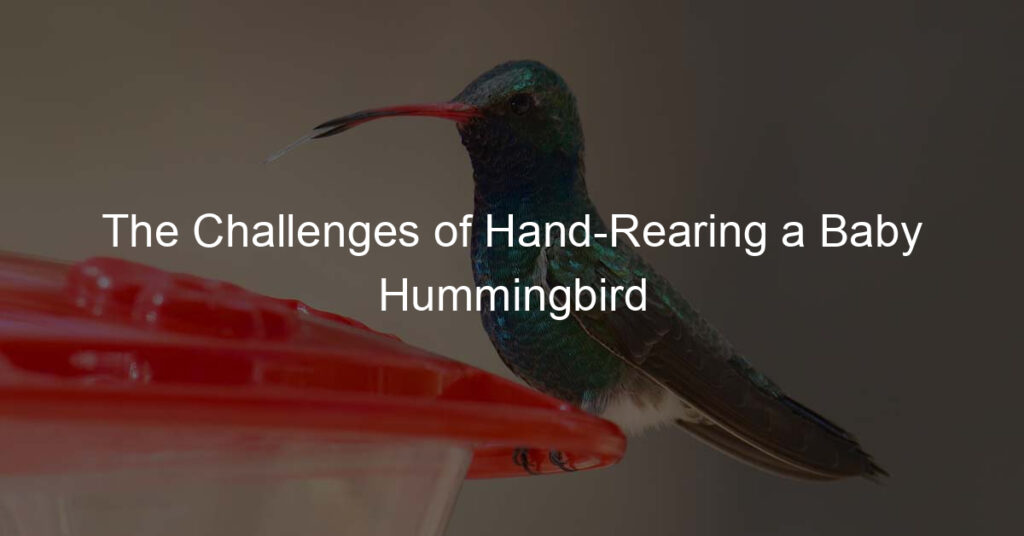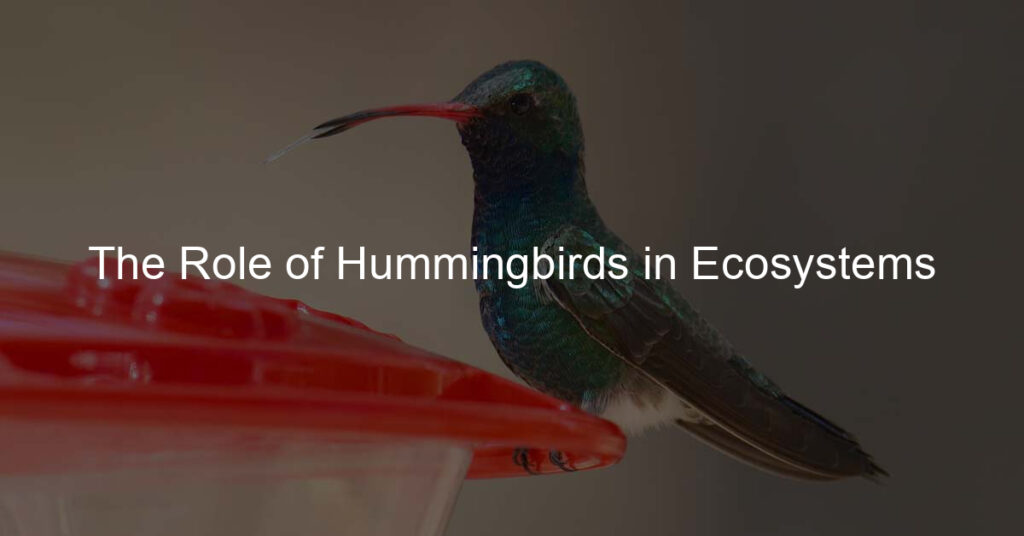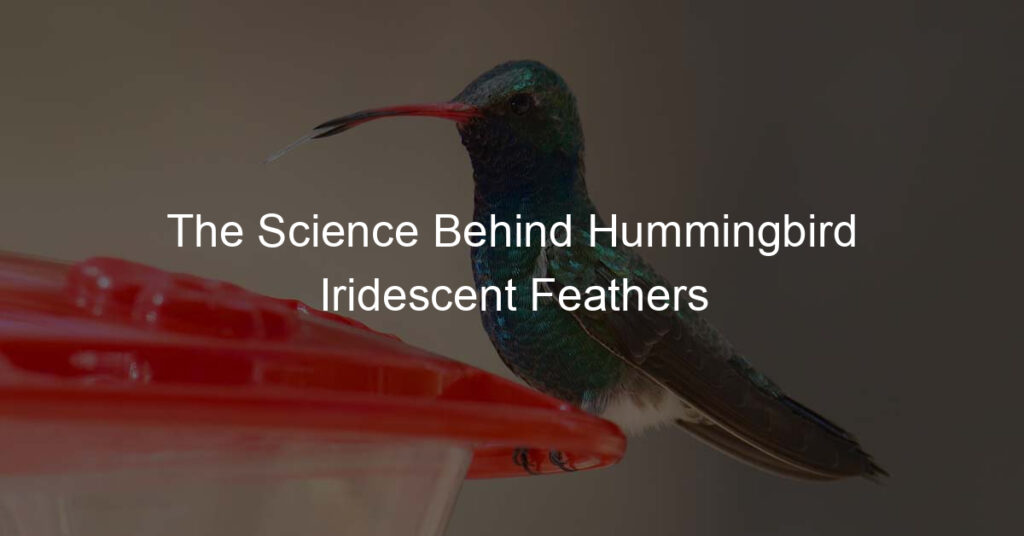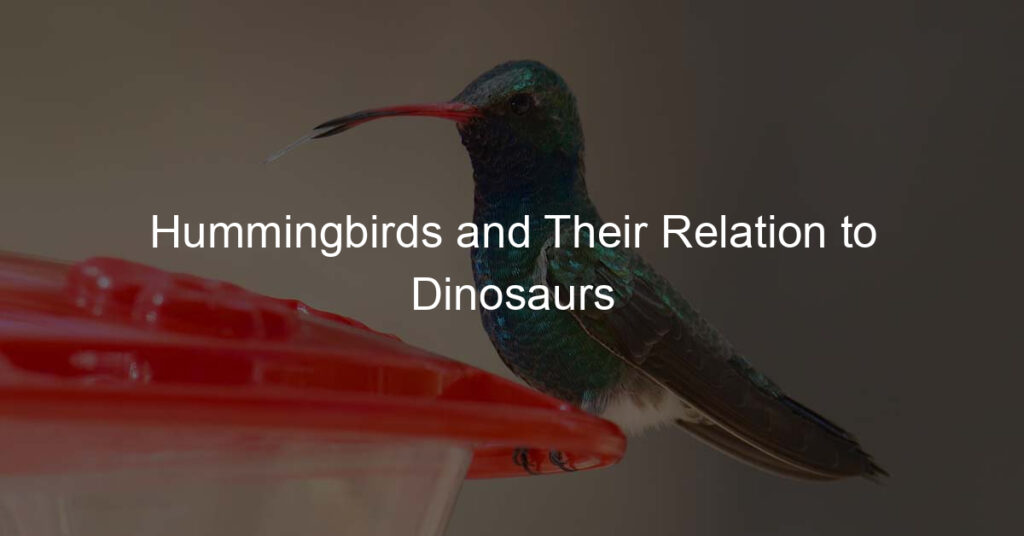Do you know how often hummingbirds sleep? Believe it or not, they sleep quite a bit! In this blog post, we will discuss the sleeping habits of hummingbirds and some of the benefits of getting a good night’s rest.
Introduction To Hummingbirds
Hummingbird species have captivated the imaginations of people for ages with their mysterious ability to hover, fly backward and forward, and even upside down. These tiny birds are truly remarkable animals! In addition to seemingly magical capabilities, hummingbirds are also incredibly fast – they can fly up to 50 miles per hour!
There are over 330 known species of this creature in the world that span from Alaska to Tierra del Fuego, but no matter where these birds call home one thing remains sure: hummingbirds exhibit some of the most breathtakingly colorful feathers known to humankind.
Read more: How Often Do Hummingbirds Eat?
The coloration of these plumes ranges from the shimmering blue-green throat of Costa’s hummingbird to the violet hips and glittering bronze feathers of a Ruby-throated hummingbird. With its unprecedented mobility and astounding plumage, it’s no wonder why so many observers have been enchanted by hummers.
How Often Do Hummingbirds Sleep?
The answer may surprise you — hummingbirds sleep at night quite a bit! Although their sleeping patterns are quite bit different from ours, these tiny birds get an average of 10-15 hours of sleep every day, especially during cold nights. This may seem like a lot for such small birds but it is actually essential for their survival.
Unlike humans, the majority of this sleep takes place while they’re perched midair on branches and wires. Their wings help to lock them into one spot and keep them balanced, allowing them to enter a deep sleep for short periods of time as they rest between journeys.
Read more: How Do Hummingbirds Feed Their Babies?
During the hours that a hummingbird spends sleeping, its metabolic rate is significantly reduced and it does not need as much food as when it is awake. This enables the bird to conserve energy and stay healthy while still getting enough rest. So, not only are these birds beautiful to watch but they also demonstrate impressive self-discipline when it comes to sleeping.
In addition, hummingbirds sleep upside down with their beak tucked in and their head resting on their back feathers, allowing them to sleep even more soundly than when they are upright. In this way, sleeping hummingbirds get more body heat during winter. While this may seem strange for us humans, it is actually quite common for many birds.
Reasons:
The reason why these little birds need so much rest is because of their unique metabolic needs. These creatures feed throughout the day on tiny insects, nectar, and sugar water for fuel. In order to make sure they have enough energy to fly around and take care of themselves, hummingbirds must get plenty of rest.
Research also finds that hummingbirds have special eye muscles that can close off their sight when they settle down to sleep in the night — this helps them to stay safe while they rest up and prepare for their next adventure during the day.
Read more: How To Hand Feed Hummingbirds
Benefits Of A Good Night’s Rest For Hummingbirds:
Hummingbirds are amazing creatures, and part of what keeps them healthy is getting enough sleep.
- A good night’s rest is infinitely beneficial for them in so many ways – not only does it help their mental alertness but, perhaps more importantly, a regular sleep schedule helps to maximize their energy levels and body temperature throughout the day.
- With limited time during daylight hours to feed and establish territories, making sure they have plenty of energy when they’re awake is essential in order to fend off predators, search for food and build nests.
- A good night’s rest gives hummingbirds the added boost they need to do all these tasks quickly and efficiently.
- Furthermore, a proper amount of REM sleep every night has been shown to enhance an animal’s cognitive abilities as well as reduce stress levels caused by environmental factors like noise or light pollution in urban areas.
So if you’re looking for a way to help your local hummingbird population thrive healthily, make sure they get at least 10-12 hours of beauty sleep every night!
Read more: How To Make A Hummingbird House
How Can You Create An Environment To Help Your Hummingbird Get Enough Sleep?
- A good night’s sleep is essential for a healthy hummingbird, and creating the right environment to make it happen is key. To give your pet a restful place to unwind, make sure the area is nestled away from direct sunlight, noise, and other disturbances.
- Additionally, by providing multiple perches around the space, the bird will have plenty of places to stretch out comfortably during their sleep. To help maintain the perfect temperature for your hummingbird’s nap time, try using an indoor thermometer to monitor for any drastic changes in heat or cold.
- Finally, selecting brighter colors for its surroundings – such as blues, purples, and greens – may create an uplifting atmosphere that can soothe your little friend into a deep slumber.
With these easy steps in mind, you’ll be sure to set up an ideal space for your pet hummingbird’s sleep.
Read more: Do Hummingbirds Chirp?
Interesting Facts About Hummingbirds:
Hummingbirds are some of the most charming and beautiful birds found in nature.
Impressive Flight & Foraging Capabilities
Even though they are small in size, they have impressive flight and foraging capabilities.
Their Wings Beat Up To 80 Times Per Second
Major fun facts about this species include that their wings beat up to 80 times per second, enabling them to hover in mid-air, fly backward and even upside down a superpower not found among many other birds!
Possessing Longer Bills
Hummingbirds also possess proportionally longer bills than other bird species because they rely heavily on nectar from flowers to help feed.
Staying In Local Areas
Further, while most birds prefer to migrate south during winter months, hummingbirds can often stay year-round depending on food availability in local areas.
These fascinating creatures have captured the interest of scientists and bird watchers alike due to their incredible adaptation skills all around the world making us realize just how special these little ones truly are!
Final Thoughts:
Hummingbirds sleep quite a bit! These tiny birds get an average of 10-15 hours of sleep every day. Hummingbirds need to get enough sleep in order to stay healthy and energized throughout the day. A good night’s rest is essential for these incredible creatures, so make sure that you create an environment that is conducive to a deep slumber. By providing multiple perches away from direct sunlight and noise, as well as more vibrant colors in the space, you can give your hummingbird the perfect place to relax and rejuvenate. With these few simple steps, you can help ensure that your pet is getting enough rest every night!

